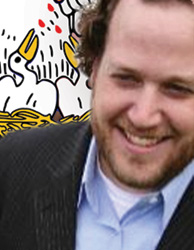By Jeremy Alford And Mitch Rabalais
How does $250,000 sound? That was the one-night take for U.S. Sen. John Kennedy at a recent New Orleans fundraiser.
The event’s headliner, however, had as much political value as the checks being autographed by donors. Showing up to support Kennedy — in person — was Senate Majority Leader Mitch McConnell of Kentucky.
While Kennedy has at times been critical of the upper chamber’s leadership, the two men are said to have a relationship that’s growing stronger. (Kennedy once told reporters that McConnell was “like a cat on a fat rat” when it came to health care reforms.)
Kennedy has $2.4 million locked up in his primary campaign account, and the figure is positioned to balloon over the next year or so. With committee assignments on appropriations, banking and judiciary, Washington politicos contend Kennedy has taken to the Beltway’s fundraising circuit rather quickly.
Those tracking Kennedy’s finances are watching the junior senator’s expenses, as well. Given his elected position, nearly every public outreach can be a statewide appeal — or, in other words, an appeal to the electorate that selects the next governor.
Kennedy hasn’t ruled out running for governor in 2019, and key supporters aren’t sure what to expect. But the senator is keeping a few campaign staffers on the payroll, and is otherwise spending money to deepen his positions.
The campaign’s largest individual expenses are for direct mail and, more so, for Kennedy’s fundraising operation. From the start of 2017 through the first quarter of this year, Kennedy spent $300,000 on a high-functioning team headed up by consultant Courtney Guastella.
The question, of course, is what is Kennedy doing? As a U.S. senator, he cannot spend money raised on the federal level to win a statewide race like governor.
But there is case law, established by the legal team of former U.S. Sen. David Vitter when he ran for governor in 2015, that seems to pave the way for Kennedy to donate his federal cash to a supportive super PAC that would in turn seek to influence the top race of 2019.
None of that will be needed, of course, if Kennedy decides to stay in the nation’s most exclusive chamber.
In The Tuesday Tracker, former U.S. Sen. John Breaux tackled the topic: “Oh, I cannot imagine leaving the United States Senate after one year to go run for governor. In the United States Senate, you are one of a hundred in the whole country, and you have an ability to unilaterally effect national legislation on a day to day basis. I think the atmosphere is easier to work in the United States Senate than it would be being governor. I had looked at it after I had already retired from Congress after 34 years. I think I never would have given up a United States Senate seat to run for governor.”
Political History: When A Governor Resigned
Kennedy made headlines earlier this month by suggesting that Gov. John Bel Edwards should resign from office. Unbeknownst to the senator, his remarks came almost exactly 79 years after Louisiana’s last gubernatorial resignation.
Richard W. Leche had been a loyal lieutenant of Huey Long. Rewarded with a plum judgeship in New Orleans, Leche had a reputation as an affable guy who was well liked throughout the Long machine.
After the Kingfish’s assassination, the machine was split over whom to field as the candidate in the 1936 gubernatorial election. After tense negotiations, they settled on Leche as a compromise, throwing Huey’s brother, Earl, on the ticket as their candidate for lieutenant governor.
Once he was firmly ensconced in the Governor’s Mansion, Leche and his cronies started divvying up the perks of power, using state government to cater to their personal demands. With the treasury flush with oil dollars and federal money flowing in at a staggering rate, rampant corruption soon became blatant. It was Leche who famously uttered, “When I took the oath as governor, I didn’t take any vows of poverty.”
Observing all of this was former Gov. Jimmy Noe. According to historian Jack McGuire, Noe was bitter at having been pushed out of office by Leche and began collecting information about the various misdeeds of the governor and his friends. Armed with these reports, Noe fed the information to journalists, who soon began exposing the corruption in the Capitol.
As the reports began appearing in newspapers more frequently, Leche withdrew from his public duties, hiding out at his private estate on Bayou Lacombe in St. Tammany Parish.
On June 21, 1939, the governor summoned reporters to the Governor’s Mansion for a bedside press conference to announce that, “on the advice of his doctors,” he would be resigning for health reasons.
On the day before Long was scheduled to take the oath of office, Leche summoned reporters to the Governor’s Mansion again and announced that he was ordering the arrest of LSU President James Monroe Smith, who had confessed to stealing hundreds of thousands of dollars from the university’s endowment. Smith had fled Baton Rouge and was a fugitive-at-large being actively hunted by the State Police. The governor pledged to delay his resignation until the LSU matter was resolved.
According to Harnett Kane’s Louisiana Hayride, machine loyalists, lawmakers and state political heavyweights filtered in and out of closed door meetings at the Governor’s Mansion that night.
The following morning, Leche announced that he would, in fact, resign immediately. That afternoon, Earl K. Long was sworn in as Louisiana’s 45th governor.
Within a year, Richard Leche would be an inmate in a federal prison.
Political History: An African-American Governor In Louisiana
A total of 92 years before the passage of the Civil Rights Act, a black man sat in the governor’s chair as Louisiana’s chief-executive. But many don’t know his story.
The name Pinckney Benton Stewart Pinchback is mostly a foot-note in Louisiana history textbooks. He’s been largely overlooked in preference of the colorful characters and enormous egos of the Bayou State’s bygone governors.
Pinchback was born on a plantation in Georgia in 1837, the son of the estate’s owner. His mother was a slave. Pinchback, his mother and siblings were set free by his father and lived in relative comfort on one of his plantations in Mississippi. But when his father died, the family fled to Ohio, fearful of being forced back into slavery.
Having to support his family, Pinchback worked as a steward aboard riverboats on the Mississippi River. During this time, he developed a penchant for gambling, learning the finer points of games from the various travelers along the river. Throughout his life, Pinchback would be known as a skilled card player who also enjoyed an afternoon at the track.
At the height of the Civil War in 1862, Pinchback traveled to Union-held New Orleans, where he volunteered to recruit African-American troops and lead them in an Army regiment. While he rose to the rank of captain, he eventually resigned over what he viewed as gross discrimination in the military.
Returning to New Orleans, Pinchback became the leader of the Fourth Ward Republican Club and won election to the 1867 constitutional convention, where he authored several resolutions fully integrating schools and public accommodations.
The following year, he won election to the state Senate and became Senate president within a year.
When Lt. Gov. Oscar Dunn (also a black officeholder) died in 1871, then-Gov. Henry Clay Warmoth appointed Pinchback to take Dunn’s place. It was an odd choice. Warmoth and Pinchback were political rivals and openly clashed. According to historian Jack McGuire, they were attending separate events in New York when Pinchback rushed back to Louisiana in attempt to sign legislation as “acting governor” that Warmoth had refused to approve. Warmoth had the lieutenant governor’s train delayed so he could arrive home first.
Not long after that, the House impeached Warmoth in December of 1871. Under the laws at the time, the governor was suspended from office until a verdict was handed down by the Senate. Over Warmoth’s protests, Pinchback took the oath of office. When Warmoth tried to lock Pinchback out of the governor’s office, Pinchback had the door broken down.
Because there was just a month left in the term, the Senate refused to convene for a trial. So Pinchback served the remainder of the time and carried out the general gubernatorial duties. He was elected to the U.S. Senate after leaving office, but was refused his seat over an election dispute.
In his later years, Pinchback worked as an attorney on the landmark Plessy v. Ferguson case and helped establish Southern University. He died in 1921 at age 84. He would remain the only African-American governor in the U.S. until 1990.
They Said It
“I can’t count votes and I can’t read numbers.”
— House Ways and Means Chair Neil Abrasion, D-New Orleans, explaining special session sleep deprivation
For more Louisiana political news, visit LaPolitics.com or follow Jeremy Alford on Twitter@LaPoliticsNow.














Comments are closed.